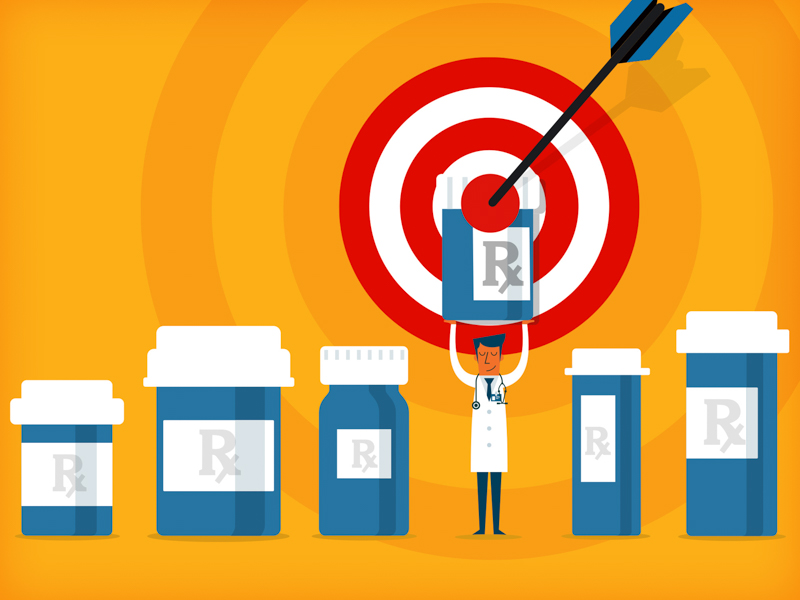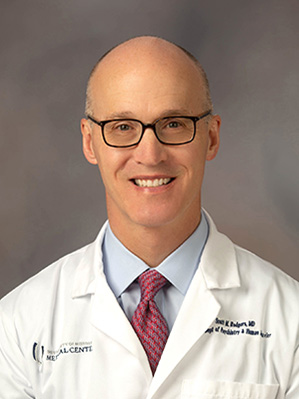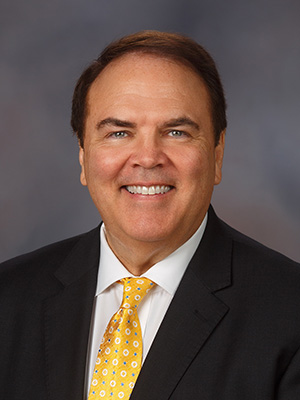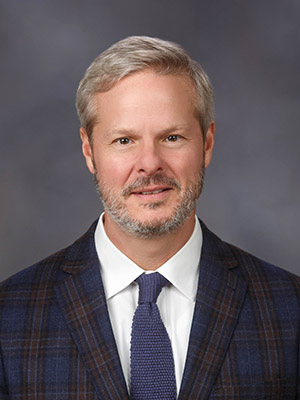Psychiatry can match drugs to DNA for made-to-measure treatments

The day is coming, it seems, when your prescription medicine may fit you as comfortably as a tailor-made suit, an alternative to a less-customized treatment right off the pharmaceutical rack.
At the University of Mississippi Medical Center, the technology in the field that makes this adaptation possible has been available for years in this field: medical genetics and precision medicine.
It has mobilized advances in patient care, helping physicians diagnose a patient early, before symptoms set in; helping them propose preventive measures for those who inherited certain gene mutations that can lead to disease; and more.
While it has been a welcome windfall in cancer therapy, now a particular feature of precision medicine is being harnessed for the practice of psychiatry: pharmacogenomics.

“It can save time; it can save resources. It can help us avoid prescribing a treatment that might have severe side effects. That’s a wonderful benefit,” said Dr. Scott Rodgers, chair of psychiatry and human behavior at UMMC.
Pharmacogenomics harmonizes a medication with a person’s genetic makeup, or genome – an individual’s complete set of DNA; it enables physicians to fashion, like a tailor with a client’s body measurements, individualized care for a patient with depression, addictions, mood disorders and more.
“In psychiatry, for many years, we have focused on the trial-and-error approach for pharmacotherapy [drug therapy],” Rodgers said. “One treatment may not work for a certain patient. It may have side effects for one patient but not for another. We don’t really know unless we do a trial, which can last months.
“Some patients respond right away to a medication; for other patients, you may need to try many treatments before you land on one.”
The immediate hope is that pharmacogenomics is leading to reduced risks for patients, including side effects.
There are at least a couple of reasons the Department of Psychiatry and Human Behavior decided to introduce pharmacogenomics – and to adults and young patients alike, Rodgers said.
First, is his department’s connection with the Mayo Clinic; the two have been working together for some time on a research project to find biomarkers, or biological signposts, for bipolar disorder. Through this relationship, Rodgers and his department, including Dr. Mark Ladner, learned more about pharmacogenomics, which the Mayo Clinic introduced to their clinical practice several years ago.

“Pharmacogenomics testing detects how your unique genes respond to a certain medication; this requires information about your genetic makeup,” said Ladner, professor of psychiatry and human behavior, director of the Division of Adult Psychiatry, and director of outpatient psychiatry.
Your genome carries an estimated 30,000 genes, each of which makes certain proteins called enzymes that metabolize (put to good use), substances, including medicine.
“But that metabolism varies from person to person,” Ladner said. That’s where testing comes in.
The second reason for pharmacogenomics’ entrance into the UMMC practice of psychiatry is that people had been asking about it, especially parents of children who are outpatients, Rodgers said.
“That was another impetus, and we are getting the word out.”
So far, the word is spreading pretty well at the Center for Advancement of Youth, whose executive director is Dr. David Elkin, professor of psychiatry and human behavior in the Division of Psychology.

“Some parents have already requested this for their children and some reports have come back,” Elkin said. “Prescribers here are aware of those reports and are using them.” Pharmacogenomics has been applied to the treatment of, among other conditions, ADHD – attention deficit hyperactivity disorder.
“Here in CAY, we have child psychiatrists, psychiatric nurse practitioners and developmental behavioral pediatricians in the clinic under one roof.” That roof covers northeast Jackson’s Highland Bluff building, CAY’s expanded home since 2019.
“That’s 80 people and 20,000 square feet of space,” Elkin said.
The testing routine is pretty much the same for adult and pediatric patients.
“We are sent a kit and we take a simple cheek swab of a patient, and this is then sent off to the company that makes the kits,” Elkin said.
That company, GeneSight, sends back a report, and the patient’s physician or prescriber interprets the results and recommends a therapy based on that, said Ladner, who sees adult patients at Behavioral Health Specialty Clinic at University Physicians in Flowood.
This course contrasts with the traditional prescribing method of “one-size-fits-all,” Ladner said. “That one size is based on a statistical average of who will respond and who will not.”
The Mayo Clinic’s website says that, for now, the labels of more than 200 different drugs carry information about pharmacogenomics biomarkers; of course, many of these drugs are not used for psychiatric conditions.
At any rate, Ladner said, “you’re not having to cycle through a numerous medications. Normally, by the time we see patients for depression, for instance, a couple of anti-depressants may have already failed them. It is case-by-case, though. It’s not for everybody every time.
“Still, it doesn’t have to be only for a treatment-resistant patient; but I believe that’s where it will be particularly effective.”
A test must be recommended and ordered by a patient’s physician or nurse practitioner. Patients who pay aren’t charged until the report comes back, Ladner said.
“There is actually a home kit,” he said. “It can be sent to you by your doctor after ordering it. But we try to do it in the clinic; it’s more ideal that way.”
The testing doesn’t cost the Medical Center anything, Ladner said. “Patients with Medicaid or Medicare pay nothing for the test. Others are charged up to $330, but most people don’t get charged even that.
“It’s a painless process and quick – it takes about two days to get the results back.”
For his part, Elkin is already seeing pharmacogenomics catching on in CAY, and believes this is only the beginning. “We hope so, absolutely,” he said. “That will also depend on psychiatry as a whole moving forward.
“With cancer, you pull a blood sample on a patient and see that this child has, say, leukemia. And you can tell what type of leukemia with a blood marker. But, in psychiatry, we can’t pull a sample and say, ‘this person has depression,’ or ‘this person has anxiety.’
“There are no biomarkers for those. But we can still benefit from this technology. And, as this progresses, it will become more precise. I‘m glad Dr. Rodgers thought of us and pointed us in this direction.”
Rodgers cautions that there are limitations for the practice of psychiatry. “We don’t want to overpromise and under-deliver according to our patients’ expectations,” he said.
“Precision medicine is probably strongest in the area of oncology and it’s used here routinely in the Cancer Center and Research Institute.
“For psychiatry, for now, its usefulness is that it tells us which side effects can occur; it lets us know how to adjust dosages. This is very important.
“So we want to be on the front end of this technology, and as we use it, it will improve. Our trainees and faculty will become more familiar with pharmacogenomics, and here we will be at the forefront of discovery.”


